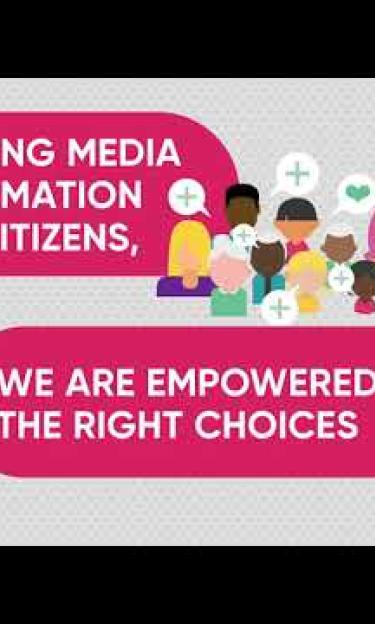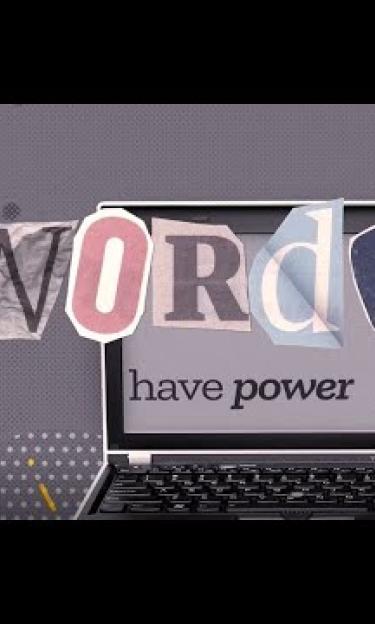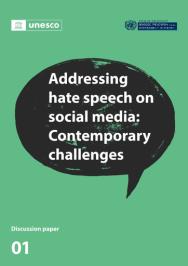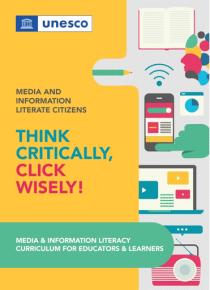
Social Media 4 Peace Quiz
You have completed the Social Media 4 Peace quiz, congratulations! This is a first step to contribute to a more peaceful digital space but to deepen your knowledge on Media and Information Literacy, we invite you to take a look at useful UNESCO resources presented below.
What is Media and Information Literacy?
Media and information literacy empowers people to think critically about information and use of digital tools. It helps people make informed choices about how they participate in peace building, equality, freedom of expression, dialogue, access to information, and sustainable development. UNESCO supports and champions media and information literacy initiatives across the globe.

What is the difference between Misinformation and Disinformation?
False and misleading information can cause harm since it may serve to confuse or manipulate citizens, create distrust in international norms, institutions, or disrupt democratic processes such as elections and silence voices who speak truth to power. It can also paint a false picture about key challenges such as climate change.
But there is a difference: the intent:
- Disinformation: Information that is false and deliberately created to harm a person, social group, organisation or country
- Misinformation: information that is false but not created with the intention of causing harm

How to Detect Disinformation?
Digital innovations such as artificial intelligence have made mis- and disinformation more sophisticated and therefore harder to detect.
With Media and Information Literacy, citizens gain relevant skills and tools to debunk mis- and disinformation.

How to become more resilient towards online Hate Speech?
Hate speech not only causes harm at the personal level and can incite violence, but it is also an attack on inclusion, diversity and human rights. It undermines social cohesion and erodes shared values, setting back peace, stability, sustainable development and the fulfillment of human rights for all. Addressing and countering hate speech is a multilayered endeavour which includes tackling its root causes and drivers, preventing it from translating into violence and dealing with its wider societal consequences.

What can journalists do to counter the spread of online misinformation and disinformation?
Journalists are the trusted guardians of public interest and an essential element of society’s checks and balances on power.
However, the advent of digital platforms, such as social media has challenged the quality, impact and credibility of journalism. In addition, the information we consume online is being contaminated by orchestrated campaigns to spread untruths via disinformation.
Therefore, journalists need to adapt to this digital environment to better address misinformation and disinformation.

Facts and Figures

Wide-scale and sustainable Media and Information Literacy training for all is still missing.

as part of the Social Media 4 Peace project funded by the European Union.

took step to develop national policy and strategy on Media and Information Literacy.

Trained to integrate Media and Informational Literacy in their policies and operations.
To learn more, visit the webpages:
Documents















